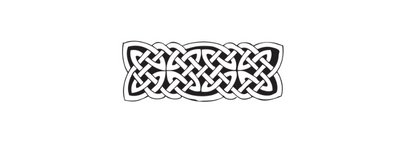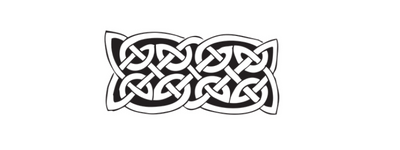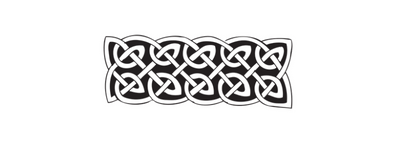The Easiest and the Hardest Celtic Languages
This article will look at the easiest and the hardest Celtic languages to learn, from the perspective of an English speaker.
There are six primary Celtic languages - Irish, Scottish Gaelic, Manx, Welsh, Breton, and Cornish - all originating in areas of Western Europe. Other Celtic languages have previously existed in this part of the world, but these six are the only ones still in use today.
Unfortunately, due to colonization and other historical events that are far too complicated to get into here, most Celtic languages are spoken in only limited numbers. However, all these languages have prospering communities of people hoping for and working towards revival.

An overview of the family of Celtic languages
The Celtic Language family is part of the larger Indo-European language group (containing the Romance languages, Germanic languages, and more). The total number of speakers of each language is approximately as follows:
- Irish - 1.7 million
- Welsh - 880,000
- Breton - 200,000
- Scottish Gaelic - 87,000
- Manx - 1,800
- Cornish - 500
(Note that these numbers are not referring to native or fluent speakers, but rather the number of people who claim to have some grasp of the language.)
The Celtic languages can be split into two distinct groups:
- Brythonic/British (Welsh, Breton, Cornish)
- Goidelic/Gaelic (Irish, Manx, Scottish Gaelic).
The Goidelic languages are often called «Q-Celtic» languages, while the Brythonic languages are known as «P-Celtic». This is because, in the Goidelic languages, the hard ‘c’ sound is often used in words that use a ‘p’ or ‘b’ sound in the Brythonic languages.
This is demonstrated in the word ‘what’ in each language which, with the exception of the Scottish Gaelic, follows this pattern:
- Cén (Irish)
- De (Scottish Gaelic)
- Cre (Manx)
- Beth (Welsh)
- Petra (Breton)
- Pyth (Cornish)

The Goidelic group of Celtic languages
Irish: the most-spoken Celtic language
Irish is the most-spoken Celtic language, with approximately 1.7 million speakers - but only about 70,000 speak it as a first language.
Irish is one of the national languages of Ireland (along with English), where it is a mandatory subject in schools, and used in conjunction with English in all government documents and public signage.
Irish is used daily by approximately 74,000 people in Ireland (outside of education). This usage primarily happens in the Gaeltachtaí - areas in the west of the country where Irish is the primary language.
It is important to note that the language of Ireland is not called «Gaelic». This is a common misconception, most likely due to the fact that the word for it in Irish is “Gaeilge”.
The Irish language should exclusively be called «Irish». The term «Gaelic» refers only to Scottish Gaelic, spoken in Scotland.
For more on the Irish language, see this list of the thousand most common Irish words.
We have also published an article on Irish compliments, a guide on how to write a letter in Irish, and a guide to Irish girl names.
How difficult is it for an English speaker to learn Irish?
Despite the small size of the country, Irish differs largely from province to province. There are three main Irish dialects - Munster, Connacht and Donegal - and they are significantly different from each other.
Compared to the other Celtic languages, Irish has less influence from Romance or Germanic languages in terms of orthography and syntax.
Word order, in particular, is very different to English and other European languages. In most European languages, sentences follow the subject-verb-object structure, whereas in Irish it is verb-subject-object.
Pronunciation is one aspect of the Irish language which makes it a difficult Celtic language for English speakers to learn. While there are set rules for pronunciation, these can take a while to learn. The pronunciation of a letter is dependent on the other letters in the word - much like in French.
All of these differences can make Irish confusing for an English speaker to get their head around. Often though, these concepts come at the beginning of the learning process - which means that, once you stick to learning Irish, it becomes easier down the road.
Scottish Gaelic
Scottish Gaelic is mainly spoken in the Highlands and the Western Isles of Scotland. Approximately 87,000 people claim to have some understanding of Scottish Gaelic - but only about 1,500 people speak it as a first language.
Scottish Gaelic stems from Irish and they are very similar in a lot of ways. However, there have been so many adaptations and changes over the years that Scottish Gaelic must be recognized as a language all on its own.
Unlike Irish in Ireland, Gaelic is not a mandatory subject in schools but it is an optional subject in some schools and used as a language of instruction in others. It is also possible to take degree courses through Gaelic.
How difficult is Scottish Gaelic?
Unlike Irish, the Scottish verb systems were changed over the years to be slightly more in line with English.
This means that Scottish Gaelic grammar is slightly easier than that of Irish, but not hugely so. For example, Irish still has a genitive case while Scottish Gaelic rarely uses it anymore.
For the most part, though, both languages bring similar hurdles for learners. Scottish Gaelic has the verb-subject-object sentence structure, gendered nouns, and grammatical cases.
Pronunciation is also a difficult aspect of learning Scottish Gaelic, as many of the sounds in this Celtic language will seem unfamiliar to English speakers.
These things can be difficult at the beginning but are not insurmountable for a language learner. With studying and practice, Scottish Gaelic can be learned the same way other languages can.
What is Manx and how hard is it to learn?
Originating from the Isle of Man, Manx is the least-spoken language in the Goidelic branch.
While Manx became somewhat extinct in the 1970s when the last native speakers passed away, there is an active revival effort and the number of fluent speakers is growing. Currently, there are about 1,800 speakers of the language.
Manx is closely related to the other Goidelic languages of Irish and Scottish Gaelic, and is understandable for speakers of those languages when spoken.
It does, however, have different spelling conventions, which make the written language less obviously related to the others.
Manx is a phonetic language and the spelling is relatively straightforward, making it the easiest language in the Goidelic branch.
But unfortunately, the limited number of native speakers and the lack of online resources are a huge hurdle for learners. So, while Manx might be an easier language in itself, it is extremely difficult to gain any sort of fluency in it.

The Brythonic group of Celtic languages
The Welsh language
Welsh is the most-spoken Celtic language, with about 500,000 - 600,000 speaking it as a first language. These speakers are mainly located in Wales, but there is also a large amount of Welsh speakers scattered throughout England.
There is a divide between the spoken and written versions of Welsh. Literary Welsh is traditionally used in writing but is spoken by practically no one. On the other hand, the commonly-spoken language is rarely written down.
There are currently plans in place to create a written version of the language which lies between literary and colloquial Welsh.
There is also a large divide between the northern and southern dialects of Welsh. These differences are vast and target everything, from pronunciation to syntax and phonetics.
However, with a more universal Welsh-language media more readily available in the country, this gap between the dialects is narrowing.
To learn more about the Welsh language, see this list of the thousand most frequently-used Welsh words.
We have also published an article on basic Welsh phrases and a guide on writing emails and letters in Welsh.
To learn about typical Welsh names, see these guides on Welsh girl names and Welsh boy names.
How difficult is it to learn Welsh?
Welsh is a phonetic language, and almost all its verbs are regular. Welsh might look intimidating written down, but once you have learned how to pronounce certain letters, Welsh is relatively straightforward to speak.
It also has a similar orthography to English. This makes it, in general, easier for English speakers to learn.
But there comes a time in most language-learning journeys where you have to surpass grammar exams and listening exercises, and actually, get out and use the language with native speakers.
While the differing dialects add an extra difficulty for those learning Welsh, the fact that it has many more native speakers than other Celtic languages makes it much more accessible.
Add to that the wealth of learning resources available, and Welsh becomes a relatively easy Celtic language to learn (in as much as any language can be).
Is Breton a difficult language to learn?
Breton is a Celtic language of the Brittany region of France. It is spoken by over 200,000 people and used daily by approximately 30,000.
There is a large divide between the Breton spoken by the older and younger generations. The Breton spoken by young people today is much more influenced by French grammar and intonation - making it easier to learn for French speakers.
Additionally, because it is used in France, Breton has absorbed a lot of vocabulary from French and Latin.
Depending on the background of the learner, this French/Latin influence could be a good thing in terms of learning the language. The pronunciation is not too challenging for an English speaker, and many of the French loan words are be recognizable.
However, Breton is an endangered language, and few resources exist for learning it. This presents a big challenge for those wanting to learn this Celtic language.
What is Cornish, and is it an easy language?
Cornish is a language of the Cornwall area of England - an area inhabited by about 500,000 people.
Unfortunately, Cornish is technically a ‘dead’ language, as the last native speakers died in the early 1800s.
While the revival effort for Cornish is smaller than that of Manx, it does exist. There are various studies detailing the amount of Cornish spoken, with most estimating that around 500 people are fluent in the language.
The pronunciation and phonology of Cornish are not too difficult for English speakers, making it an easier Celtic language overall than Irish or Scottish Gaelic.
However, the limited number of native speakers makes Cornish much more challenging. There is very little opportunity to learn this Celtic language, and even less opportunity to become fluent in it.

Which Celtic language is the hardest to learn - and which is the easiest?
In terms of the actual language - spelling, syntax, pronunciation, and morphology - Irish is the most difficult of all Celtic languages to learn. However, there is more to learning a language than just the language itself.
The wealth of resources and amount of speakers plays a huge part in how well one can learn a language. While Cornish and Manx may be slightly on the easier side in terms of the language itself, the lack of learning materials and native speakers make it very difficult to gain any sort of fluency.
On the other hand, Welsh is slightly more straightforward than Irish and comes with hundreds of thousands of speakers and an endless amount of resources. This surely makes Welsh the easiest and most accessible of all the Celtic languages.
Regardless of which is the hardest and which is the easiest, all the Celtic languages are fascinating for a myriad of reasons. Learning any of them would be a challenging yet extremely rewarding experience.
So, what are you waiting for? Start learning today!